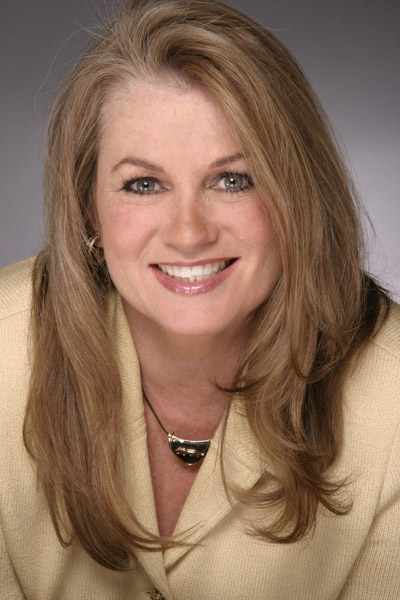Fractional CFO’s Value Added
Why an outsider can help…
Most business owners are multi-taskers and adept at several of the skills it takes to run a successful business. Afterall, they did not reach the level of success they have by accident. Many are hesitant to spend money, especially on what seems to be an expensive “outside hire” when they have talent inside the company.
However, a fractional CFO can be worth his or her weight in gold as they bring a depth of expertise to the business not typically found in controllers or bookkeepers internally. A recent quote on LinkedIn brings this to mind. The quote was referencing the pushback many consultants receive from prospective clients on their hourly rate and stated that you are paying not for the one hour consult but the 30+ years it took to gain this knowledge.
While many business owners believe they are aware of their costs and can tell if sales programs are working, they may not really be looking at the big picture. A fractional CFO can help a business owner by bringing in their big-company expertise and setting up systems to track and measure profitability for each line of products or services offered. All too often, we see business owners fall in love with a product or an idea and roll it out without any sense of how to measure the market’s acceptance.
Wearing many hats…
Along with that multi-tasking personality and ability comes the issue of the owner perhaps wearing too many hats. One business owners I spoke with recently about this very issue believes that by being out of the office concentrating on sales, he will force his staff to take on more responsibilities including tracking of the sales process. Another president of a privately held enterprise has been rolling out new ideas and products without any method of tracking to see whether they are effective which is a concern to the rest of senior management.
And yet another proprietor in the food and beverage area asked me to help him acquire a new vendor for some of his core products. When I asked whether the issue was service, supply or price, the answer was price. While price is one factor and certainly weighs heavily, it may not be the only concern a business owner should have. Measuring these qualitative issues is something a seasoned CFO can set up ways to track as well.
A fractional CFO can work in a variety of ways tailoring their services to the needs of the business. Their goal is typically to make themselves obsolete and allow the business to either hire a fulltime CFO or perhaps install systems and procedures which can be run internally by a controller. In some cases, the fractional CFO can revisit on a quarterly basis to keep systems humming.
What does the business need…
In some cases, the business simply needs a good structure. What worked in the past when the business was smaller may simply be outdated or not able to handle the need for increased reporting. When private equity companies take over a company, they often want to bring in a fractional CFO to review the internal numbers and add quality talent which may not have been affordable when the business was solo. In this case, the CFO may work for an interim period to get books in order and then actually help to hire the right talent.
In other cases, a fractional CFO can come in one to five days a week for a limited engagement. Depending on the scope of work needed, they can implement procedures, assist the business owner and his or her internal team with forecasting of their products and services providing a structured way for the owner to measure the success of any new (or old) products on a regular basis.
Another situation where a fractional CFO plays a huge role is in getting a company ready for a financial audit. If you are heading towards selling your company, the potential buyer is going to want to examine your books. Attending to your financials in advance of an outsider coming in for a view is a wise idea.
Many business owners still funnel personal or semi-personal expenses through their business which can affect their EBITDA (earnings before interest, taxes and depreciation). Businesses are typically sold at multiples of EBITDA. If there are personal or semi-personal expenses such as the annual golf club membership or the house in Palm Beach, which may truly be used to conduct some business but not be a core expense, deciding how to treat these before an outside comes in to view your books is in your favor.
If you are growing your enterprise and want to be sure you have a firm handle on your real profitability as well as have systems which allow you to easily measure progress, bringing in a fractional CFO can make a great deal of sense.
About Chapin Hill Advisors, Inc.
 Kathy Boyle founded Chapin Hill Advisors in 2000 after spending her early career working in large and small investment firms on Wall Street. Chapin Hill Advisors works with privately-held businesses, often family-owned, to help them execute financial, estate and succession planning. We work with the business owner to be sure their business will provide their family with the financial security needed , identify areas of risk and help create strategies to mitigate risk.
Kathy Boyle founded Chapin Hill Advisors in 2000 after spending her early career working in large and small investment firms on Wall Street. Chapin Hill Advisors works with privately-held businesses, often family-owned, to help them execute financial, estate and succession planning. We work with the business owner to be sure their business will provide their family with the financial security needed , identify areas of risk and help create strategies to mitigate risk.
Businesses often need assistance creating strategies to allow the business to succeed the owner as well as address structure, systems and procedures. As a business grows, the owner needs to have a plan in place to allow succession, whether an outright sale or a transition to family, partners or employees.
We work with businesses of all sizes to assist them in creating strategies to increase revenue and profitability and tie the future growth to the owner’s or families’ personal financial goals. With larger businesses, we offer a resource directory of trusted professionals. Small businesses or solo-entrepreneurs can benefit from Chapin Hill’s combination business and personal planning strategies.
As a fellow entrepreneur, Kathy speaks from experience. She has tested many strategies in the trenches and seen her clients make mistakes as well as successes. Kathy helps entrepreneurs implement strategies for future success and helps to coach them to execute action steps.
She has advised business clients of all types and sizes on structuring sales of their businesses as well. Without a long term plan and a team who can replace the founder’s talents, a business is less likely to be purchased. Kathy’s background on Wall Street and in financial planning allows Chapin Hill to implement strong financial controls and combine both estate planning as well as business planning for future success.
For more information or a complimentary meeting, feel free to contact Kathy Boyle at: kboyle@chapinhill.com or 212-583-1992.





Leave A Comment